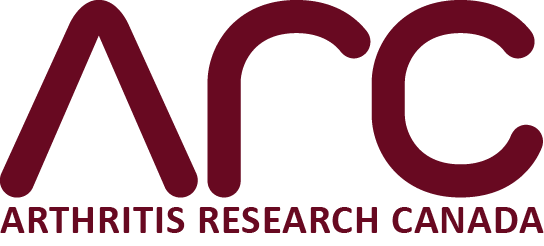Lesson 5 of JointHealthTM Education – RA discusses the importance of what you do in the way of self- care, including learning about what you can and cannot control about your RA, and what you can do to maximize the benefits of your treatment plan in between appointments with your rheumatologist. Self-care in RA is a very important aspect of learning to live well with RA.
At the end of Lesson 5, you will understand the importance of self-care principles and actions, know how to develop a daily self-care plan, and learn what aspects of your plan and your progress against it you should share during appointments with your rheumatologist.
Please read each section of this lesson carefully, and then when you are ready, take the Lesson 5 Quiz to test your new knowledge. The quiz is an interactive and printable PDF.

Take charge of what you can control
- It is important for patients with RA not to blame themselves if a medication or non- medication treatment doesn’t work. There are a number of things about your disease that you can and cannot control, such as which joints the disease will affect, how severe your disease may be at time of diagnosis, whether you will have RA complications, among others.
- However, you do control whether you follow the treatments as prescribed and other aspects of your treatment plan that you develop with your rheumatologist. Recognizing what things in your treatment plan and life that you have control over will give you focus and motivate you to follow through on the things you list in your plan. Patients with RA who follow or “adhere” do better short- and long-term.
- Key aspects of your self-care plan are:
- Ongoing disease education
- Developing and following healthy life style practices
- Prescription exercise, physical activity and sport for pleasure
- Self-directed, at-home treatments
- Health journaling
- Healthy communication

Elements of a self-care plan
- Research has proved that exercise is a vitally important part of your self-care plan. When done safely, even high intensity exercise is good for patients with RA.
- The self-care aspects of your overall treatment plan might include things to improve your strength, mobility, and/or flexibility. Exercise is proved to help to improve your RA pain and overall well-being, even if you are currently experiencing pain and fatigue.
- There are three general types of RA exercise you can consider including in your treatment plan:
- Range-of-motion exercises: Joints are moved through as full range of motion as possible, to help patients with RA, especially inflammatory types, from losing mobility in affected joints.
- Strengthening exercises: These help patients with RA to gain muscle mass and increase muscle strength. Strong muscles can help to protect joints.
- Aerobic exercises: These help patients with RA improve heart and lung function, improve strength and reduce inflammation and pain, and help with self-esteem and self confidence.
- Ongoing disease education help a patient with RA feel “on top of” their disease and helps to grow their “expertise” leading to greater empowerment and overall feeling of life control. Seeking out evidence-based web sites and resource materials are important to your life-long learning journey.
- Developing healthy life style habits, such as getting appropriate amounts of sleep and rest, taking vitamins and minerals as discussed with your rheumatologist, following a balanced daily diet, quitting smoking if you do smoke, and minimal to moderate alcohol intake, among other self-managed behaviours.
- Your daily diet should include appropriate levels of calcium, vitamin D and folic acid – folic acid in particular can be effective at managing methotrexate side effects, typically nausea and mouth sores. Speaking to a dietician with knowledge about the dietary needs of people with RA is also very helpful. Some dietician services are provided for free. Ask your rheumatologist’s office staff if they can recommend one.
- Managing your stress levels, getting enough rest, and relaxation lead to a higher quality of life with RA.

At home self-care treatments
- There are a number of “at home” treatments available to you to manage the day-to-day symptoms you may have to deal with before your treatment plan begins to work at full steam.
- Ice and heat are your friends, especially in your early days of the disease. Ice applied to hot and swollen joints feels good and helps to temporarily reduce inflammation, helping you better recover from exercise sessions. Apply moist hot towels to non-inflamed, stiff joints to get ready for activities or exercise. Hot and cold baths also help relieve symptoms of joint stiffness and pain.
- Physiotherapy and occupational therapy are helpful and can typically be arranged through your rheumatologist’s office. If your government or private health care plan don’t provide coverage for these services, ask your rheumatologist what types of things they might do for you, such as joint protection techniques, stretching or strengthening, that you might be able to safely do on your own.

Sharing your self-care success with your rheumatologist
- As mentioned earlier in the course, keeping a RA journal is proved to help patients better manage the “details” of RA.
- Which aspects of your progress in between visits you need to share with your rheumatologist (and family and friends if you choose) include:
- An accurate record of prescription medication taking
- Symptoms activity, such as joint pain and stiffness and general feeling of wellness (or fatigue)
- Improvement or limitations in your daily activities, at home and at work
- Questions about changes are additions you would like to make to your treatment goals or treatment plan
- New concerns or fears you may have since your last appointment
Watch the coaching video

Arthritis Consumer Experts
© 2000-2022 ACE Planning and Consulting Inc.

ACE thanks Arthritis Research Canada (ARC) for its scientific review of ACE and JointHealthTM information and programs.

Arthritis Consumer Experts
© 2000-2022 ACE Planning and Consulting Inc.

ACE thanks Arthritis Research Canada (ARC) for its scientific review of ACE and JointHealthTM information and programs.



